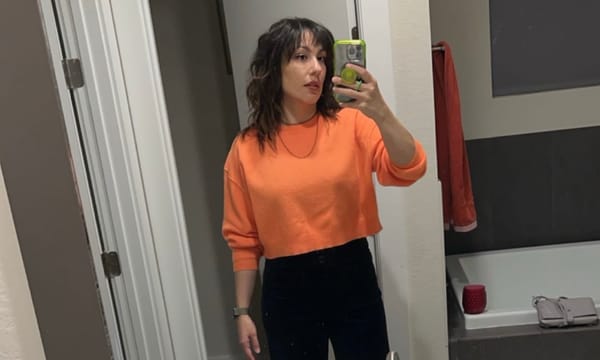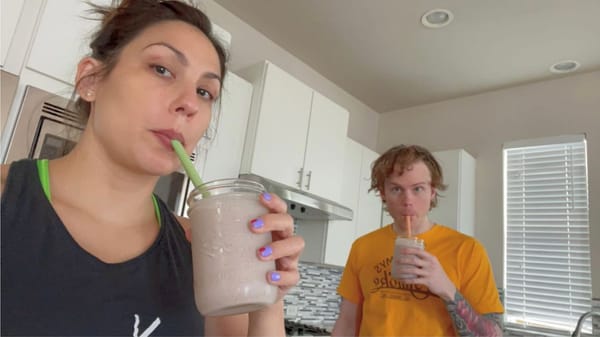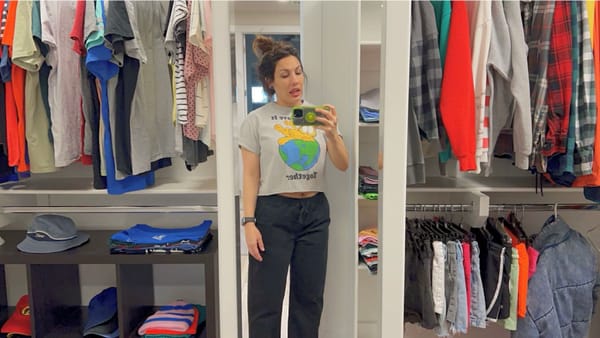3 Things Bodybuilders Do That *YOU ABSOLUTELY* Should Also Do Too
and how my father inadvertently made me tell you this
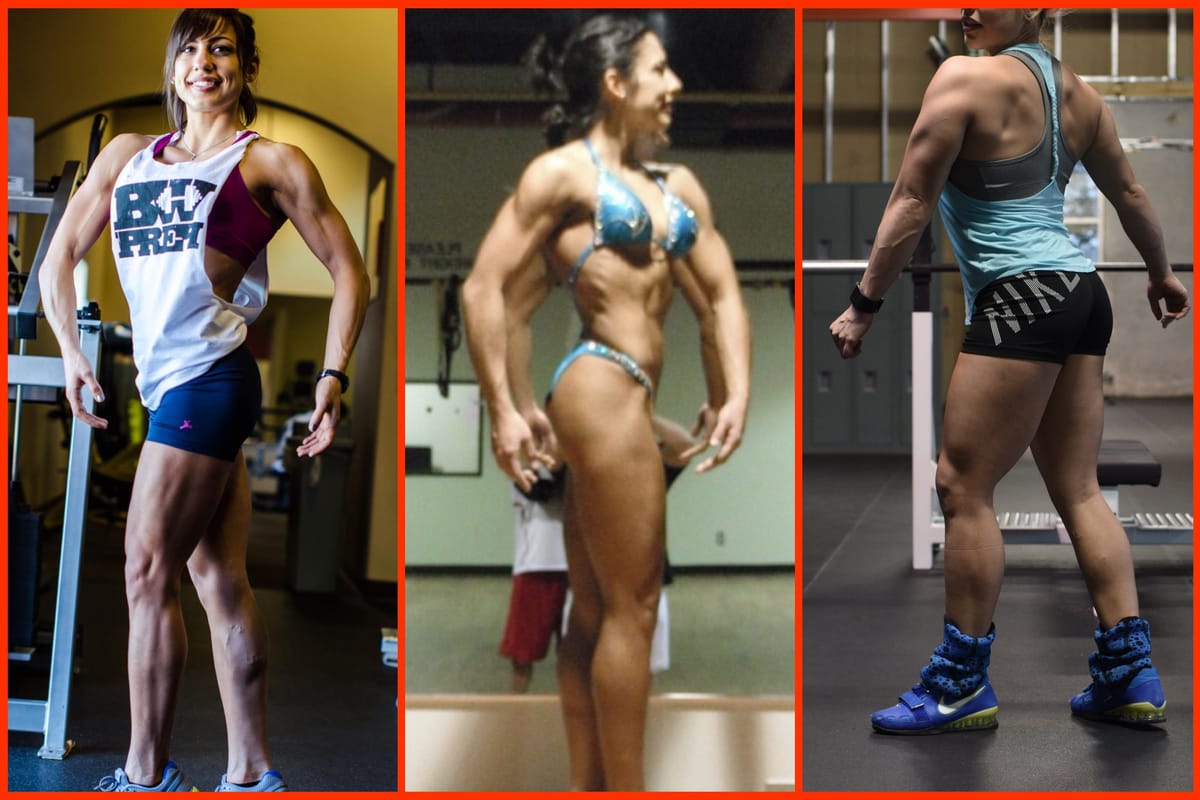
On October 2nd of 2021, my dad had a heart attack.
It was one of the scariest and most traumatic days of my life.
When my aunt called to tell me what happened, I threw some shit in a bag and drove as fast as I could from Austin to Corpus Christi, TX.
Those 4 hours it took to get to the hospital felt like an eternity.
Once I saw him and bawled my eyes out in relief that we would be ok after some stints and a few weeks of recovery, we took this photo in his hospital room and I began my grieving journey.
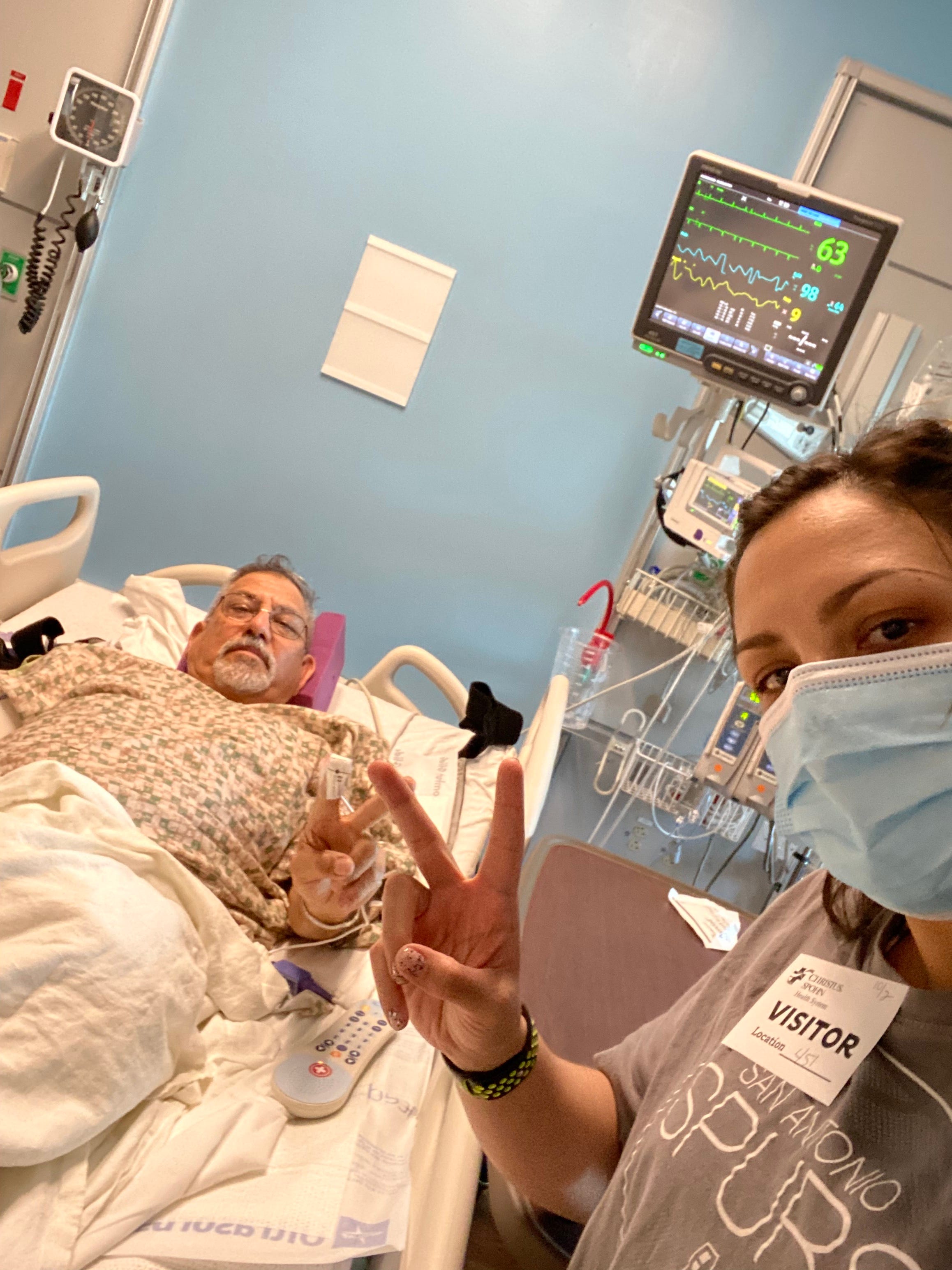
I was a different, more naive person before that day.
You always logically know that something could happen to your parents (or anyone) at any time to keep them from being here on earth.
But it’s different to know it than to feel it.
And for a few hours, I felt it.
It took some months and years to process, and I finally now see how this event has made my entire life and career more meaningful.
As someone who’s been an athlete their entire life, who has a master’s degree in exercise physiology, and who has spent over a decade making educational content online for competitive bodybuilders, I genuinely didn’t realize the privilege and gift that I’d given myself.
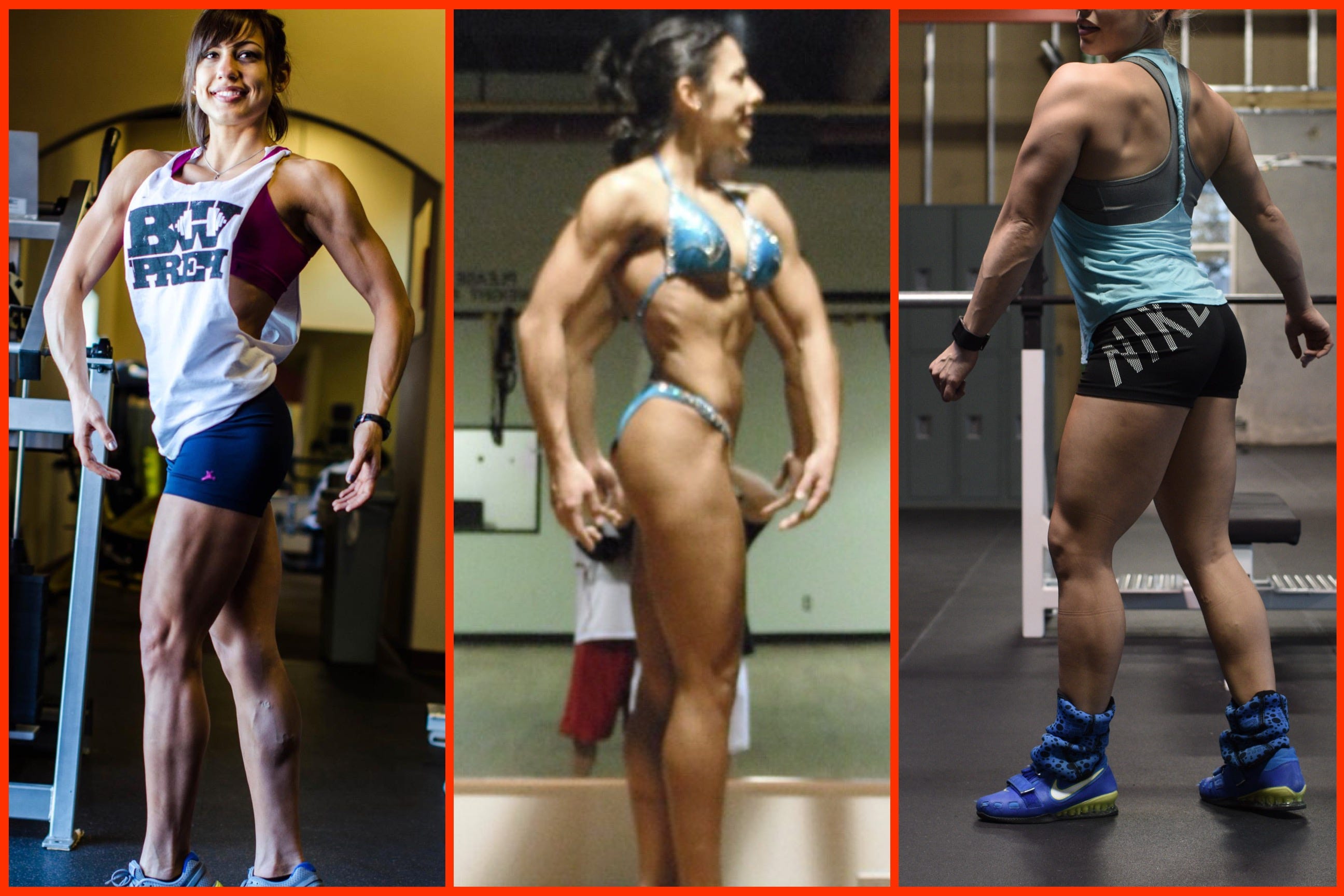
I’ve spent over 3 decades pursuing some form of physical movement practice and learning what real sustainable nutritional behaviors look like… only to selfishly better myself and other athletes I deemed worthy of such efforts.
Most of my life I looked down on “normies” and non-competitors as people who just don’t get it.
But following my dad’s heart attack, I immediately learned of my latent superpower while handling his recovery.
The vague, unhelpful, generic, blanket advice given to my father from his doctors was appalling.
The lack of answers I got for my questions regarding his heart rate targets during rehab workouts or his macronutrient targets that went along with his new unhelpful list of food suggestions was abhorrent.
My dad was impressed with all my healthcare banter around the doctors.
I, on the other hand, was simply furious.
I could not believe how little these medical professionals knew about how to take care of a normal person’s body, much less a new cardiac patients’ body.
It was also horrifying to think of how many average patients (who don’t happen to have a daughter with an exercise physiology degree) have to just listen to terrible advice, not understand it, and simply be on their way to slowly get sicker at home.
Whew! Getting heated just writing this!
I know it’s these doctor’s jobs to address illness via procedures and drugs that I know absolutely nothing about.
However, it’s obvious that there are some very basic preventative health measures that could KEEP THESE ILLNESSES FROM EVEN HAPPENING IN THE FIRST PLACE that these doctors have no clue about.
It’s not their fault. I know that not everyone can specialize in every thing.
But the rage that filled me during those hospital and doctor visits with my dad still stings three years later.
It also makes me so fucking grateful to have spent so many years learning what I know.
What a privilege to have tested so much shit on myself to the point of mild eating disorders and body dysmorphia and various periods of overtraining and long term injuries and burnout.
Good times!
And I really do mean it!
If it wasn’t for all of those extremes, including the deep dark depressing times, I wouldn’t have been as helpful to my dad and I wouldn’t be as helpful as I hope to be to you, dear reader friend.
So here are some of the most universally helpful things I’ve learned as a lifelong athlete, coach, and educator…
When I think about all the sports I’ve been involved with, the one that consistently creates the most sustainably healthy lifestyles is natural (drug free) bodybuilding.
Sure, new and inexperienced athletes can get bad info, bad coaching, develop disordered eating behaviors, create body image issues and a whole lot of other unhealthy stuff in their first few competitive seasons.
But if they either had good coaching early on, or stuck around through enough competitive dieting cycles to find out how to manage the sport, they typically develop an off-season lifestyle that would make any intelligent doctor or nutritionist proud.
After competing for 4 years, coaching for 3 years, and making content about it for 10 years now, I want to highlight what I’ve seen those people do well.
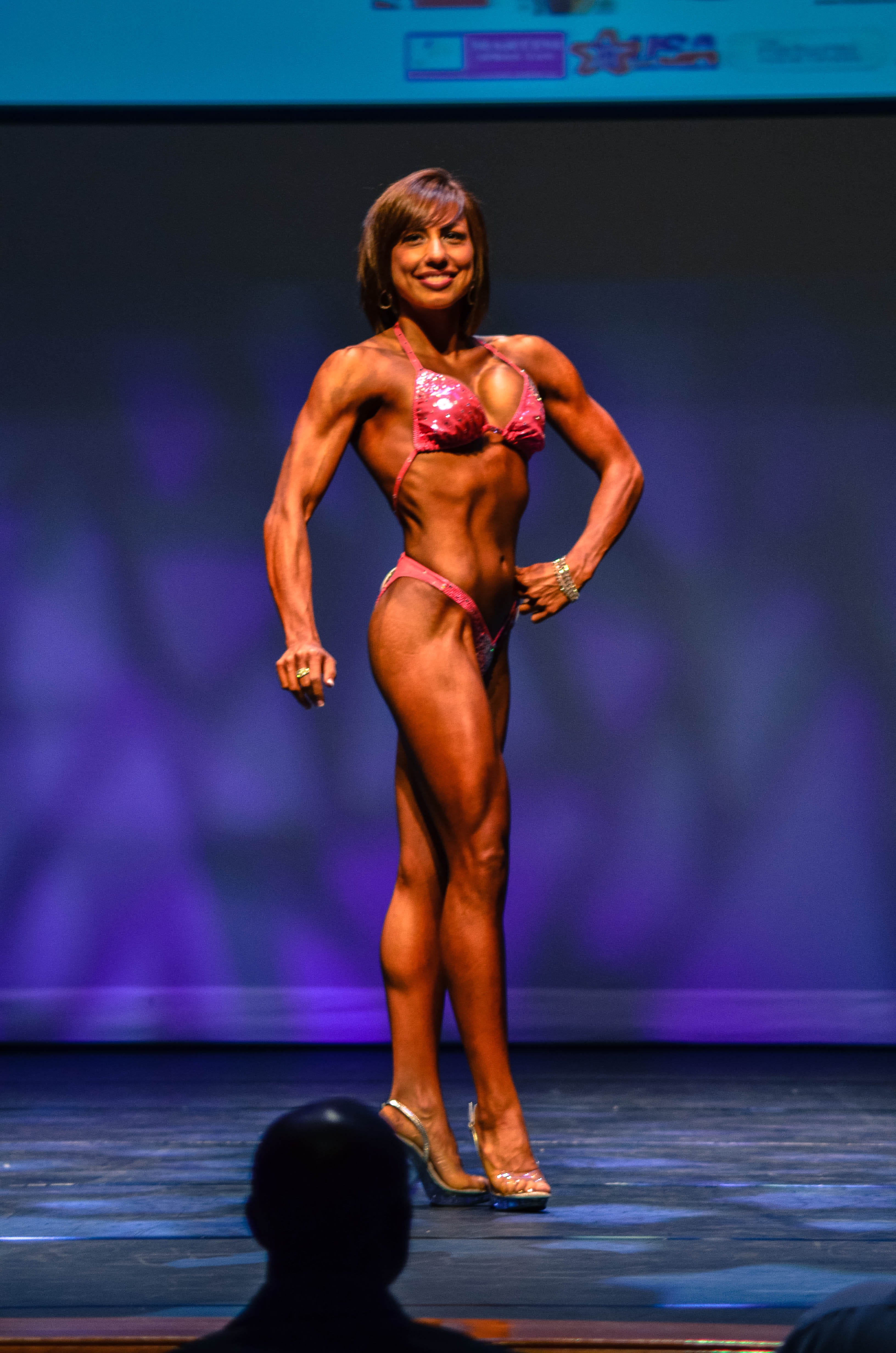
Here are 3 things off-season bodybuilders do to be healthier and feel better than 99% of all humans their age:
🪨 THING #1 - They resistance train through all 6 planes of motion.
You don’t have to be trying to get jacked to benefit IMMENSELY from lifting a little weight in a balanced way.
If the average person spent 30 minutes of their lives, 3 times a week doing a couple moderately difficult sets of each of these ranges of motion, their body would feel and perform so much better.
Not “perform” like compete, but “perform” like not hurt all the time.
Like being able to go up and down more stairs. Like being able to move your furniture or pick up your kids or pets from the ground. Like not pulling a muscle when you sneeze.
And since bodybuilding involves a balanced physique, they do all of these movement patterns in every training week or microcycle:
🦵 LOWER BODY: squatting, hinging
💪 UPPER BODY: vertical pressing, vertical pulling, horizontal pressing, horizontal pulling
Here is my colleague, Eric, explaining it in an IG reel for ya 👇
🪨 THING #2 - They prioritize protein.
The truth is that Rocky movies and absurdly dramatized supplement ads of juiced-up meatheads eating 8 steaks a day or 5 dozen eggs isn’t how it really goes.
I don’t personally know anyone in that crowd, and I’ve never been interested in what they do.
For you’re reference, I want show you a photo of the Olympia winner in UNTESTED bodybuilding (left) vs. my friend and colleague, Jeff (right) who just placed 5th in the WNBF World Championship last month, which IS drug tested.
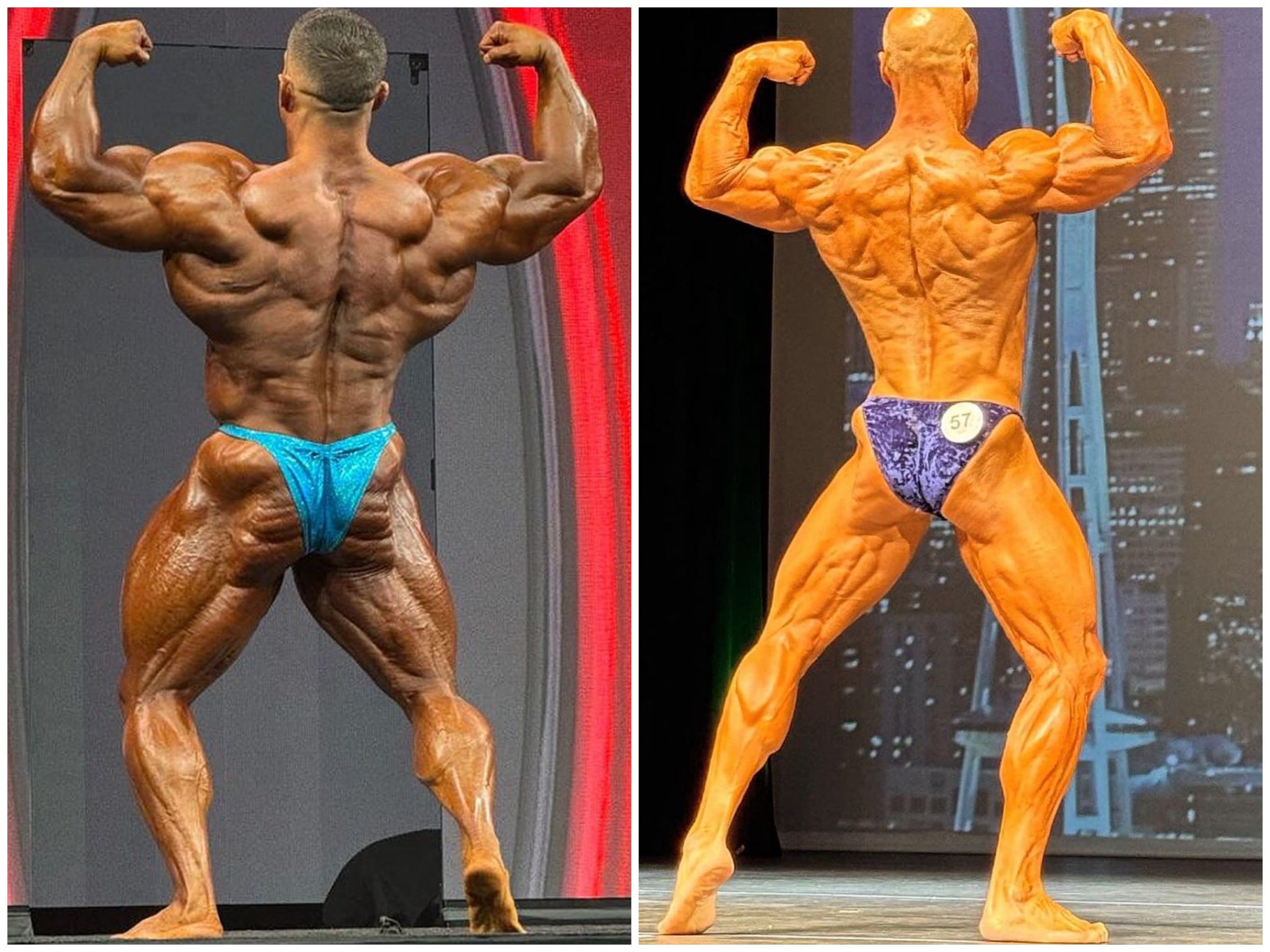
The guy on the right (who is 52 years old), and hundreds of other athletes like him are the people I know and have worked with for over a decade.
And when I say “they prioritize protein” I genuinely mean they literally just consume it as a habit.
They don’t eat anything freakish like 20 times the recommended daily intakes mentioned by most medical associations.
But they definitely do hit the minimum recommendations and then some.
Most importantly, they make sure to build each meal around it.
For someone like me who weighs around 140 to 145 lbs pounds, it’s as simple as this:
- My goal is to average somewhere between 100 and 150 grams per day.
- I like eating 4 times per day.
- I make sure to get a minimum of 25 grams of protein with the first 3 meals and try to aim for over 35 grams in my last meal.
To me, that isn’t only easy, it’s subconscious.
To “prioritize protein” simply means to eat the way I’ve been eating.
For everyone I know who has done bodybuilding for any stretch of time, it’s just as easy for them too.
Once you’re used to it, you crave it. Because without it, you feel weaker and less energized.
This is why eating in a way that supports muscle retention only gets easier with time.
And in case you didn’t already know, supporting muscle retention is EXTREMELY important for everyone.
Not just bodybuilders.
And it becomes increasingly important as you age due to sarcopenia.
🪨THING #3 - They are pursuing a slow-return project.
I consider a slow-return project to be anything you have to work at without receiving an immediate result.
And by that I mean no single workout will make you look wildly different.
No single meal will dramatically change your health status.
To take it even further — the longer you’ve been bodybuilding, the longer it takes to see any progress at all.
It’s easy for a new lifter to look different after a couple months. But someone who has been lifting for a decade or more will most likely not visually see increased muscle size for at least a year or more.
This is the same for any skilled performer or craftsman.
Do you think Adele will wildly improve her voice from this point on?
Don’t you think Lebron is going to completely 10X his basketball skills in the next 5 years?
Absolutely not.
Because they’re so good already.
Because they already laid the foundation of their respective slow-return projects and are living in the payoff season right now.
The multi-year buy-in required to reach a certain level of any skill or hobby is what builds the character and confidence to know you can continue.
The flow state has become addictive at that point, and you start to trust yourself.
And I believe self-trust is one of the highest values a human can hold.
When you learn to push past newbie stages of any project and get good enough to see returns, you’re showing yourself that you know how to learn.
When you feel secure in your learning abilities, a whole new world opens up.
You teach yourself that you can depend on yourself, and that creates a more secure existence.
In all my decades of experience in sports, I can confidently say that athletes aren’t just healthier because they’re physically fit.
They’re globally healthier because they’re the type of people that know how to overcome challenges and invest time voluntarily in something that may or may not objectively pay off.
To be able to bet on yourself, win or lose, and still know you’re going to survive another day and try again is a gift.
Participating in a sport is the intangible gift that keeps on giving.
And I believe you can get the same mental health outcomes from painting, writing, archery, jewelry making, playing music, teaching students, building businesses or any other slow-return project that you care about.
But you genuinely do have to care about it.
My dad is great health and spirits now.
Here’s a photo of us at an adventure park over Thanksgiving weekend, post-mini-golf and pre-ax-throwing.
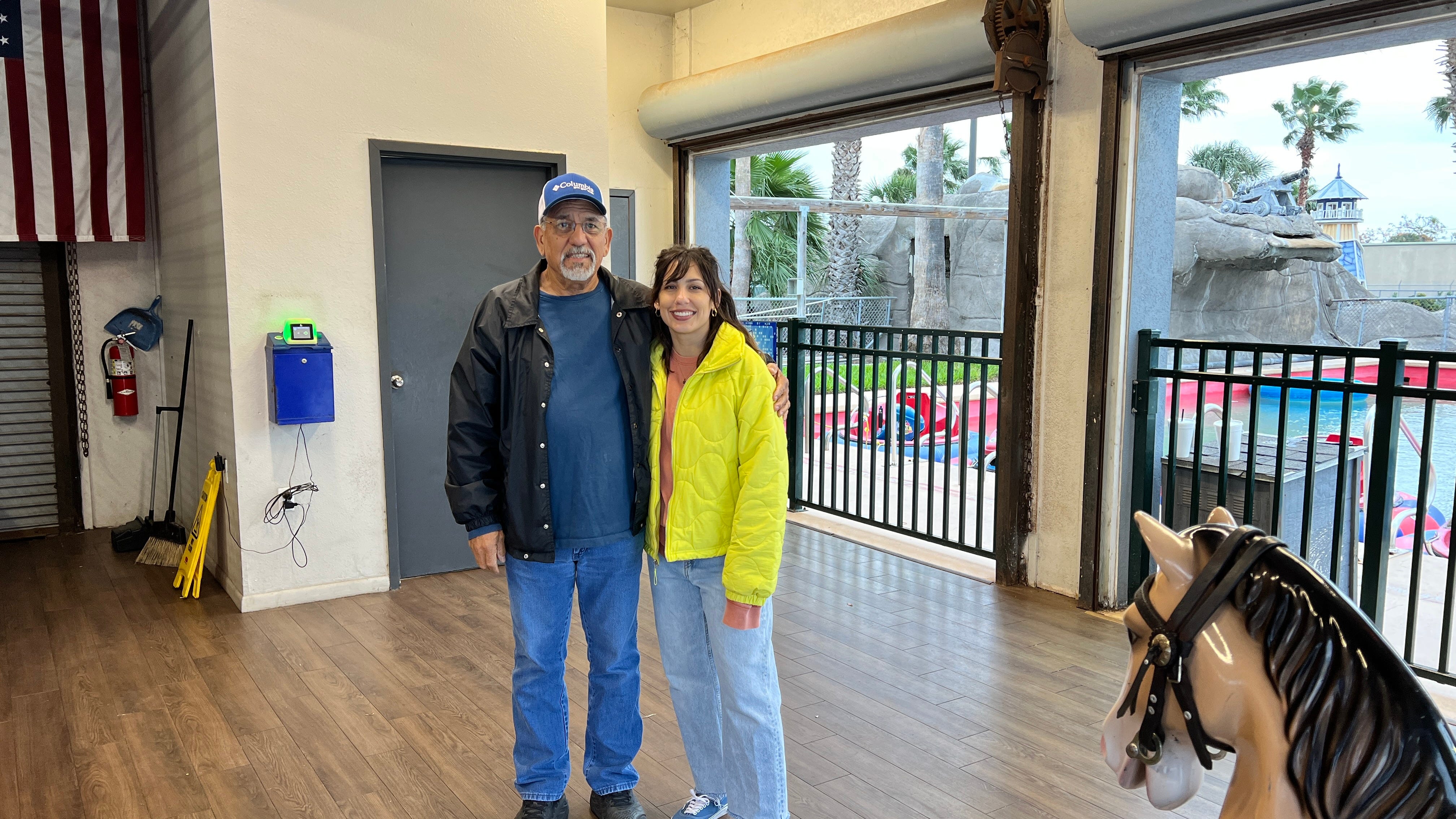
I’m so proud of how far he’s come with his nutrition and physical activity maintenance.
While his heart attack scared the shit out of all of us, I know he’ll be around a lot longer because of it.
It opened his eyes to the small daily habits that can drastically change his quality of life for his remaining years.
If this little old newsletter can help any single one of you to change one tiny habit in service of your own personal long term independence, I would be so fucking happy 🥲
Thanks for reading.
Talk to you soon.
xoxo,
AV

